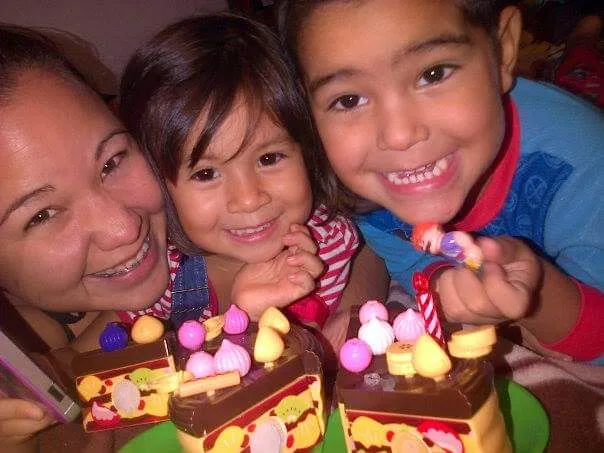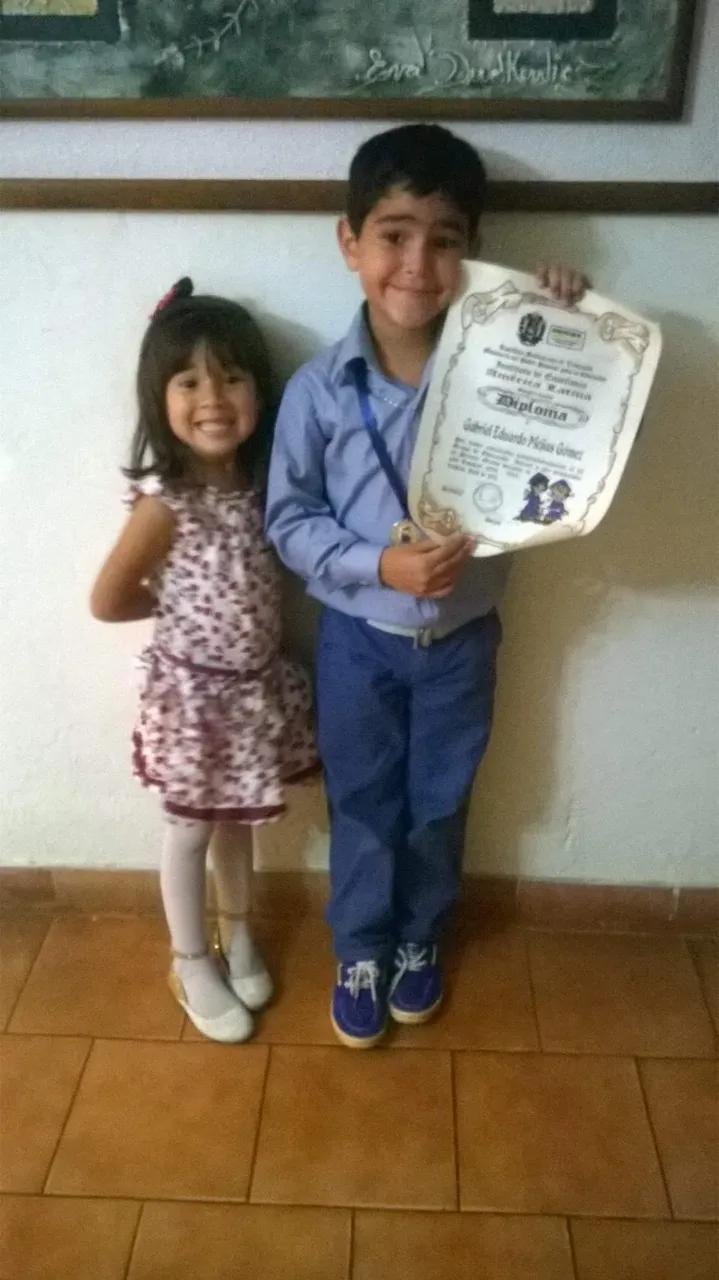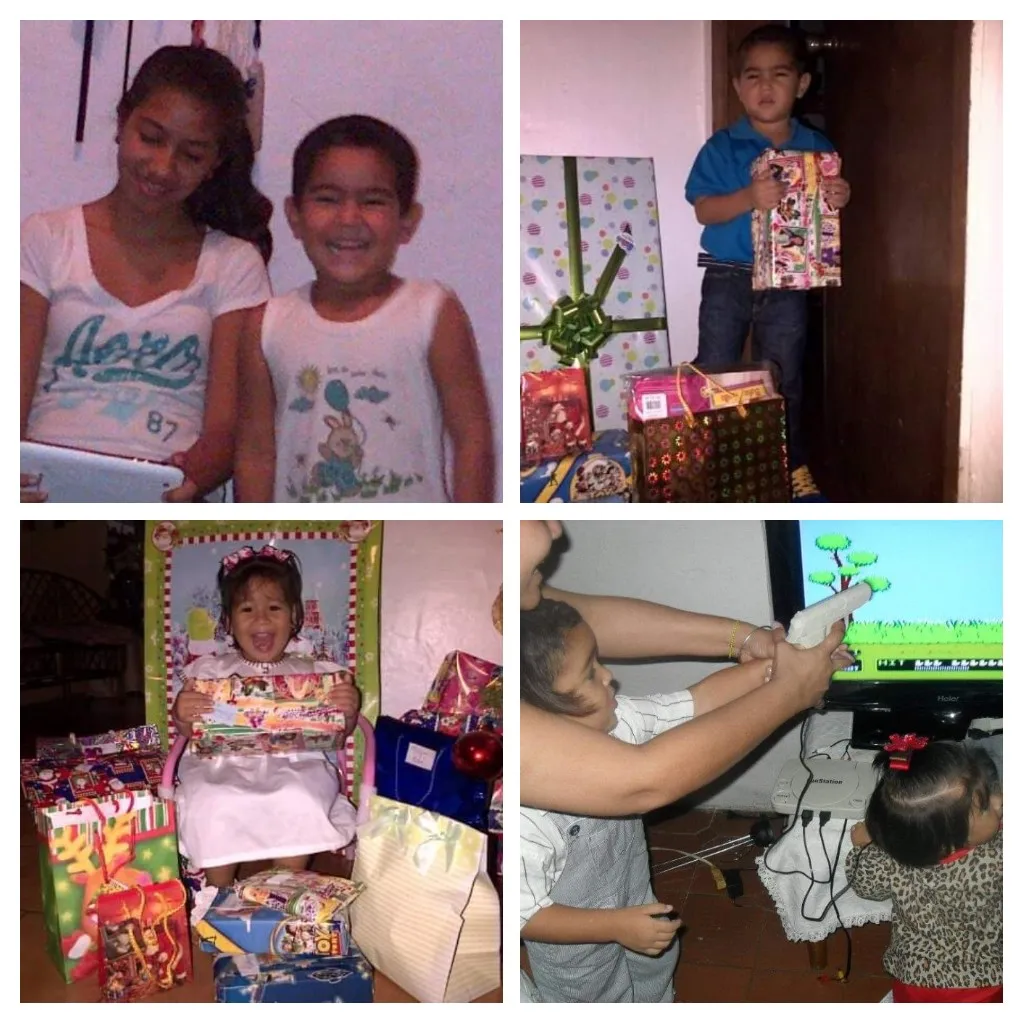
Mis queridos padres, que yo debería aprender más de ustedes con tan maravillosa artículos y comunidad, hoy les traigo un tema fresco y útil en relación con cultivar en nuestros pequeños valores como la alegría y emociones como la admiración y premiación cuando las cosas salen bien.
Cuando nosotros agradecemos, admiramos y premiamos a nuestros niños por sus buenas acciones generamos en ellos: confianza, seguridad, creatividad y mucho amor por la cosas que hacen. Ya les explicaré un poco más sobre esto.
My dear parents, that I should learn more from you with such wonderful articles and community, today I bring you a fresh and useful topic in relation to cultivating in our little ones values like joy and emotions like admiration and rewarding when things go well.
When we thank, admire and reward our children for their good deeds we generate in them: confidence, security, creativity and a lot of love for the things they do. I will explain more about this later.

Nuestros niños son eso, niños. Por su corta edad e imprecisión en movimientos y comprensión ya que aún no tienen madurez indispensable para hacer ciertas cosas como un adulto; a los niños les cuesta vestirse, aprender las letras, arreglar bien el cuarto, incluso decir una palabra que sea de uso común. Esto es totalmente normal, porque todos pasamos por eso.
Es entonces, cuando entra el papel de nosotros los adultos en reconocer sus esfuerzos y logros, desde pequeños para poder fomentar conductas y comportamientos que vayan en sintonía con los conocimientos que ira adquiriendo even el desarrollo y evolución de las diferentes etapas de su vida.
Our children are just that, children. Because of their young age and imprecision in movement and understanding, since they are not yet mature enough to do certain things like adults; children find it difficult to dress themselves, to learn their letters, to tidy their room, even to say a word that is commonly used. This is totally normal, because we all go through this.
It is then, when the role of adults is to recognise their efforts and achievements, from an early age, in order to encourage behaviours and conduct that are in tune with the knowledge they will acquire even as they develop and evolve through the different stages of their lives.

Cuando los niños aprenden a ir al baño en vez de mojar la cama, arreglan su cuarto, piden permiso en una conversación, saludan a sus mayores, piden las cosas sin pataletas, son comportamientos que nosotros podemos premiar. Aquí me quiero detener, porque cuando hablamos de premios, no me refiero a lo monetario o tangible, porque siempre tendemos a arreglar todo con eso (o casi todo).
El primer premio es el reconocimiento. El reconocimiento es observar que si algo se hacía mal o incompleto primero, con nuestra ayuda y guía, se está haciendo de mejor forma, entonces nosotros reconocemos su esfuerzo; en este sentido, para reconocer debemos ser vigilantes de lo que queremos que se logre.
Les pongo como ejemplo cuando el niño quiere caminar, entonces lo paramos, le ponemos zapatos, estamos pendiente de sus pasos y en esta época tecnológica, le grabamos cada avance.
A veces, como padres o adultos (porque toda la familia debe estar involucrada), nos olvidamos de reconocer y lo vemos "como un deber"; es muy común escuchar: "ya era hora que aprendiera", " es su deber estudiar", "al fin hizo algo bueno". Esto nos impide reconocer el esfuerzo y dedicación del niño para alcanzar una conducta aceptada y por el contrario lo desmotivará a realizar otros comportamientos aprobados porque no será reconocido.
Los premios no tangibles y que se dan de inmediato al niño son elogios, abrazos, besos, compartir los logros, y hasta llegar a acuerdos. Entre los acuerdos puede ser: jugar media hora más, eliminarle algún deber en el hogar, hacer una actividad que le guste en familia, dedicarle un día al infante, repito, no es necesario compensar o dar premios tangibles porque el día que no se pueda, entonces puede crear un efecto negativo en lo que queremos lograr.
When children learn to go to the toilet instead of wetting the bed, tidy their room, ask permission in a conversation, greet their elders, ask for things without tantrums, these are behaviours that we can reward. Here I want to stop, because when we talk about rewards, I don't mean monetary or tangible, because we always tend to fix everything with that (or almost everything). The first prize is recognition. Recognition is to observe that if something was done badly or incompletely first, with our help and guidance, it is being done in a better way, then we recognise their effort; in this sense, to recognise we must be vigilant of what we want them to achieve.
I give you as an example when the child wants to walk, then we stop him, we put shoes on him, we are aware of his steps and in this technological age, we record his every advance.
Sometimes, as parents or adults (because the whole family should be involved), we forget to recognise and see it "as a duty"; it is very common to hear: "it was about time he learnt", "it is his duty to study", "at last he did something good". This prevents us from recognising the child's effort and dedication to achieve an accepted behaviour and on the contrary will discourage the child from doing other approved behaviours because it will not be recognised.
Rewards are first and foremost praise, hugs, kisses, sharing achievements, and even making agreements. Among the agreements could be: playing for half an hour longer, eliminating a duty at home, doing an activity that the child likes as a family, dedicating a day to the child, I repeat, it is not necessary to compensate or give tangible rewards because the day that it is not possible, then it can create a negative effect on what we want to achieve.

Por último, también debemos reconocer lo que premiamos cuando no lo merece. Les pongo este ejemplo para explicar mis palabras: el niño llora para que le den el teléfono, entonces llora y llora y nosotros para salir del momento le damos el teléfono. No solo estamos premiando lo que no debemos, sino que estaríamos aumentando su conocimiento que cada vez que llore, obtendrá lo que quiere.
En estás situaciones, antes de perder la paciencia, debemos comunicarnos, calmarnos, calmar al niño y encontrar otras técnicas para atacar eso que está haciendo mal y que no podemos tolerar.
Digo esto porque también hay padres, que si el niño toma algo más de lo que están repartiendo se alegran, si el golpea y gana una pelea lo celebran, es incluso fomentan que haga cosas de adultos y al sonreír o aprobarlo el niño se sentirá en confianza para seguir haciéndolo.
Así que en conclusión, nosotros debemos reconocer y premiar a nuestros niños. En sus deportes, artes, educación, alegrías, triunfos, logros; también involucrarnos en ayudar a alcanzarlos, practicar con ellos, ofrecer alternativas, escucharlos, es decir, los niños siguen modelos y aprobaciones o no, así van aprendiendo entonces nosotros debemos ir cultivando clo bueno y armonioso en ellos y esto se puede lograr a través de nuestra premiación y celebración.
Finally, we must also recognise what we reward when it is not deserved. I give you this example to explain my words: the child cries to get the phone, so he cries and cries and we give him the phone to get out of the moment. Not only are we rewarding what we shouldn't, but we would be increasing his knowledge that every time he cries, he will get what he wants.
In these situations, before losing patience, we must communicate, calm down, soothe the child and find other techniques to attack what he is doing wrong and that we cannot tolerate.
I say this because there are also parents who, if the child takes something more than what they are handing out, they are happy, if he hits and wins a fight they celebrate it, they even encourage him to do adult things and by smiling or approving of it the child will feel confident to continue doing it.
So in conclusion, we must recognise and reward our children. In their sports, arts, education, joys, triumphs, achievements; we should also get involved in helping them to achieve them, practice with them, offer alternatives, listen to them, that is to say, children follow models and approvals or not, this is how they learn, so we should cultivate what is good and harmonious in them and this can be achieved through our rewarding and celebrating.
Todas las fotografías son de mi álbum digital de las diferentes formas que premiamos a mis sobrinos, porque bueno, nosotros si compramos regalos porque ellos lo merecen todo y más je,je,je si, yo vivo enamorada de ellos 😍😍😍😍.
Espero esta información sea útil y nos seguimos encontrando con estos temas. Si tienes alguna opinión, puedes dejarla en los comentarios.
Y ustedes, ¿Cómo premian a sus niños?
All the pictures are from my digital album of the different ways we reward my nephews, because well, we do buy gifts because they deserve everything and more he,he,he,he yes, I live in love with them 😍😍😍😍.
I hope this information is useful and we continue to meet with these topics. If you have any opinion, you can leave it in the comments.
And you, how do you reward your children?
